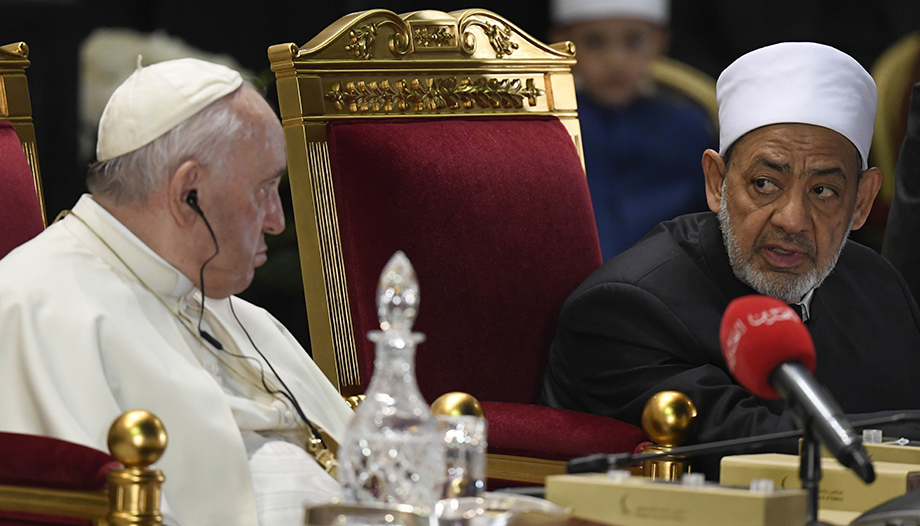"The Mediterranean Meetings". This is the title of the initiative promoted by the Archdiocese of Marseille following the two meetings of reflection and spirituality convened by the Italian Bishops' Conference: "Mediterranean Frontier of Peace" (Bari in 2020 and Florence in 2022).
The event, from September 18 to 24, will be attended by Pope Francis. In a statement, the French diocese reports that bishops and young people from 29 countries will participate.
The aim is to "bring together the five shores of the Mediterranean to reflect together on the major challenges it faces, to make the most of the resources at its disposal and to open up new paths of peace and reconciliation in which the Churches have an essential role to play, at the service of the common good".
The whole week will be animated by a Festival of the Mediterranean that will be held in various places in the city: "exhibitions, concerts, testimonies, prayer vigils, shared meals, will be opportunities to soak up the "message" that is the Mediterranean in general and Marseille in particular, a city-laboratory of fraternity".
Finally, the event in the presence of Pope Francis: on Saturday, September 23, in fact, the Pontiff will participate in the plenary meeting of the Assembly of Bishops with young people, then - the statement continues - he will participate in a moment of prayer for those lost at sea in the church of Notre-Damede-la-Garde (Our Lady of the Guard), the great basilica overlooking the city, and finally he will preside at a Mass open to all.
"The visit of the Holy Father will be for Marseille and for everyone the occasion to bear witness to a message of hope, motivated by the ability of the people of Marseille and the French to live plurality as a resource and not as a threat." These were the words of Monsignor Patrick Valdrini, who spoke this morning at a meeting promoted by the ISCOM Association with Vatican journalists.
Born on July 6, 1947 in France to an Italian father and a French mother, he was ordained a priest in 1972 for the Diocese of Verdun (France). He is rector emeritus of the Institut Catholique (Paris) and professor emeritus of Canon Law at the Pontifical Lateran University, as well as honorary president of the Consociatio Internationalis (International Association of Canon Law Scholars). In January 2022, the Holy Father appointed him one of the Consultors of the Congregation for the Evangelization of Peoples.
Positive secularism, communitarianism and coexistence
There are three key concepts recalled by Valdrini, useful to frame, also from a historical and legal point of view, the context in which the September event will take place, also taking into account the news events that question the relations between religions, the role and weight of Islam, the theme of integration and multiculturalism.
First of all, the concept of positive secularity. "In Nicolas Sarkozy's speech at the Lateran Palace," says Valdrini, "positive secularity is presented as the objective to guarantee freedom of conscience. It was not necessary to change the law of separation. Positive secularism is an attitude: not to consider religions as dangerous. Positive secularism is a method, by which the State must seek dialogue with the great religions of France and have their daily life as a guiding principle".
Second, the bogeyman of communitarianism. France has a long history of immigration: making foreigners French is still a guiding principle of immigration policies, albeit more cautiously in recent decades.
Valdrini points out: "France does not like communitarianism, and does not even collect "ethnic statistics", for example on school results, for fear of constructing distinct population categories. The republican idea of the nation as the common mother of all citizens remains a guiding star, even and especially with respect to immigrants."
In the logic of a Republic that dictates the rules of coexistence, France, after much controversy, has decided to resurrect its secularist version of secularism by imposing a ban on religious symbols in schools and other public spaces. "To the point of turning France into a country-symbol of the alleged confrontation between the West and Islam."
There -this is the third key concept-, one fact cannot be ignored: "the common French citizenship between 'residents' and fourth-generation Muslims", so that -concludes Valdrini- France is called to "find a way of coexistence, avoiding an orientation of exclusion and demonization and embracing that of pacification and the search for pragmatic solutions".
The same ones that Pope Francis, with his strength and moral authority, is preparing to reiterate in Marseille following his Magisterium on the theme of dialogue between religions and migrants.








